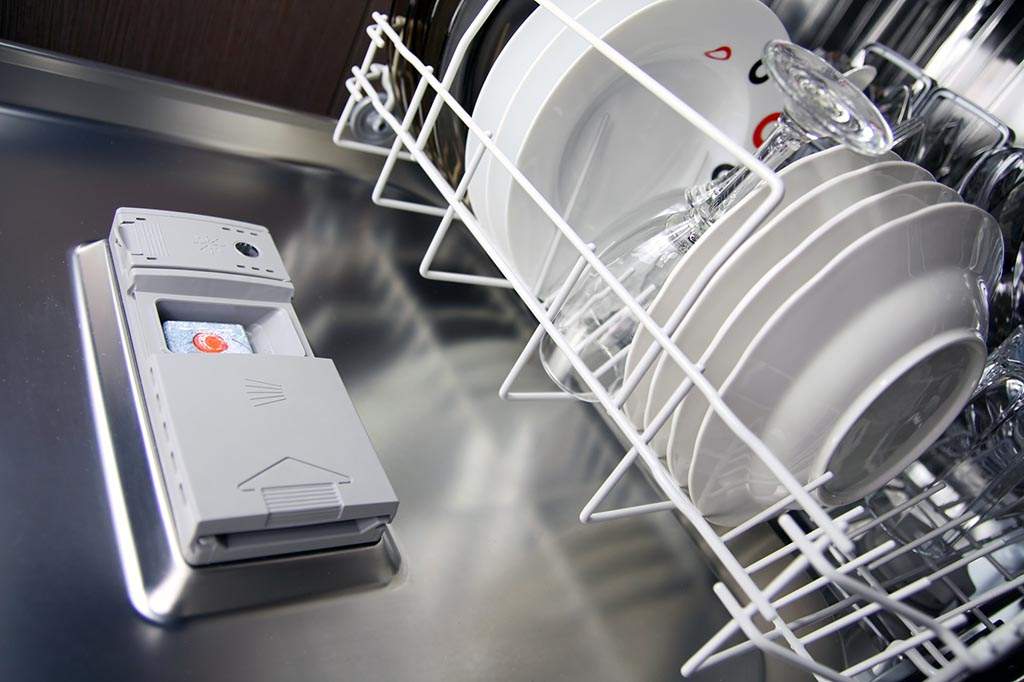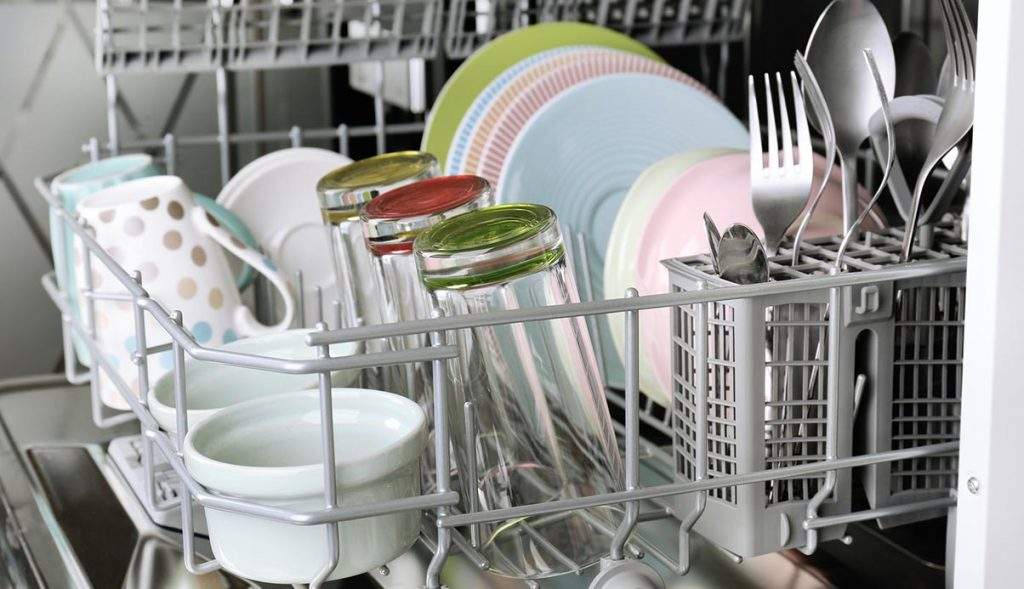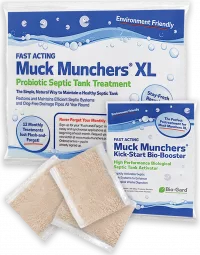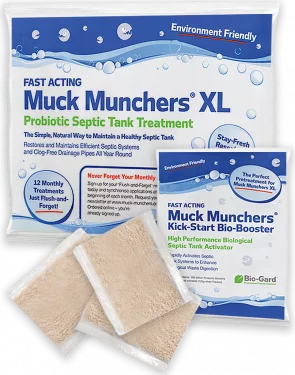Can You Safely Use Dishwasher with a Septic Tank?
Yes, you can! Septic tank owners ask can you have a dishwasher and septic tank? a dishwasher and septic tank setup is perfectly safe. However, just as you would with your toilet, sink and other drain usage, you’re going to need to be cautious about what you send down the pipes.

A few years homeowners had concerns regarding dishwashers and septic tanks. This was mainly due to the chemical formulations of dishwater tablets people were using in their dishwashers.
As you may know, bacteria in septic tank systems really do not like chemicals. Some care is required in order to conserve the good bacteria to ensure that you don’t kill them off!
For this reason, dishwashers and septic tanks have received some bad rap over the years with some septic tank users choosing to avoid using dishwashers altogether and instead choosing to simply scrub up at the sink. However, there’s really no need – it’s actually pretty safe to go right ahead and use a dishwasher and septic tank.
However, before you go ahead and put dishes in, have a quick read through our guide below – we’ll fill you in on most things you need to know about using dishwashers and septic tanks together.
Are Dishwashers Bad for Septic Tanks?
No, dishwashers are not bad for septic tanks. That said, when first getting yourself acquainted with your septic tank, it’s easy to get a bit confused about what you can and can’t flush away.
Many people buying homes with septic tanks, or those who are installing a tank for the first time at properties, often wonder if you can have a dishwasher and septic tank and what happens when you connect a dishwasher up and ask two poignant questions:
● Can you safely let a dishwasher drain away into your septic tank system without anything clogging up?
● Can you have a dishwasher and septic tank combo at all?
Septic Safe Dishwasher Detergents: How to Prevent Clogging up Your Septic System
Most dishwasher tablets and detergents available on UK shop shelves should be safe for you to use in conjunction with your septic system.
We have British legislation to thank for that. In 2017 an act was to ensure that dishwasher tablets, pods and other detergents actively limited the inclusion and use of phosphates. It’s all a case of being kinder to the environment, on one hand – on the other, it’s about being kinder to septic systems, too!
As a result you can use leading brands of septic tank friendly dishwasher tablets in your dishwasher without concerns that they may damage your septic tank.
Phosphates and surfactants, both of which can be found in dishwasher tablets (traditionally), not only impact heavily upon the performance of your septic tank, but also affect the environment in which you drain into.
A drain field or soakaway unleashing phosphates into the world leads to algae growth. Algae can be extremely harmful to wildlife – and it’s going to make things stagnate locally.
Thanks to legislation you can now go ahead and pick up detergent and tablets, including Fairy or Finish dishwasher tablets, and rest assured that you’re doing as best you can to protect your septic tank.
However, we do recommend that you try opting for some of the more specific environmentally-friendly dishwasher tablets just to be on the safe side. It’s good for your conscience too.
Some of the best eco-friendly tablets we can recommend come from household names such as Ecover or Smol. These brands intentionally lower their chemical foot print as much as possible, meaning they cause less harm to your septic tank.
Of course, it’s worth testing out these brands for yourself to see how you get on. Naturally, you’re going to want to make sure your dishwasher really cuts through that dirt and grime as a priority! However, you really, really don’t want to have to flush out your septic tank as a separate concern.
Should You Worry About Running A Dishwasher And Septic Tank?
If you’re worried about chemicals in your dishwasher tablets doing damage to your tank, there’s not much to fret about. However, there are a couple of other points you should consider, and these relate to how you actually use your dishwasher from day-to-day.
3 Issues You’re Likely To Come Across Using A Septic Tank Dishwasher
1. Dishwasher Water Usage and Your Septic Tank
Traditionally dishwashers kicked out a lot of water. In the past, this would put a lot of demand on a septic tank. What’s more, they ran-up higher water and energy bills!
Thanks to improvements in environmentally-friendly household appliances, new dishwashers tend to be more efficient. This means they use less water and electricity.
That’s going to be a relief not only for your septic tank but also for your bills, especially if you’re on a water meter and, of course, you’ll be doing your bit for the environment, too. If you are looking to buy a new dishwasher look for models with either an ‘A’ or ‘A+’ rating.
2. The Impact of Salt and Hard Water on Your Septic Tank
Do you live in a hard water area? Hard water can be a bit of a blight on septic tanks in the long run. That’s because the salt or sodium levels can be notoriously tricky, at least compared to that found in soft water.
Specifically, your septic tank soakaway, which is an integral part of your septic system, risks clogging up through a nuisance known as ‘sodium binding’. This makes it harder for your wastewater to soak away.
As you’re unlikely to know the salt content of your water, there may be a few treatments your local water supplier or engineers could offer you to help reduce the risk of your soakaway getting bogged down.
Otherwise, in this circumstance, you’re simply going to need to keep vigilant. This is, unfortunately, one of the major issues people face when handling soakaways, meaning if you do find the salt starting to clog things up for the worse, you won’t be alone. Just be ready to call in the specialists.
Do note that using a salt-based water softener can harm your soakaway. You should never allow the backwash to enter the septic tank. If you are planning on buying a water softener, do make sure it is a ‘salt-free’ system.
3. Cleaning Your Dishwasher to Protect Your Septic Tank
Just because dishwasher tablets are, on the whole, kinder to the that doesn’t mean there aren’t cleaning products out there that won’t cause a nightmare for your septic tank bacteria.
You need to consider how you clean your dishwasher. It’s convenient and easy to shop for the fanciest products and packets with the best adverts but always be vigilant as to what’s in their make-up.
In some cases, it may be best to try using a homemade concoction to clean out your dishwasher. Certainly, the last thing we’re suggesting is that you avoid cleaning your dishwasher altogether!
However, if you keep on throwing the same old cleaners and chemicals into it time after time, you may well be heading towards a pump-out – and that’s going to result in an unnecessary expense.

What Harm Can Dishwasher Cleaning Chemicals Do To Your Septic Tank?
As mentioned, there are laws to reduce phosphates in dishwasher cleaning tablets – but what about noxious chemicals in dishwasher cleaners and de-scalers?
We all need to clean our dishwashers as a matter of health and safety. You can’t let things scale up to the point where nothing ever gets clean, and you certainly want to keep your family safe. However, that shouldn’t ever come at the expense of clogging up your septic tank – as that’s a whole other health and wealth issue you can easily avoid.
You’ll likely find that many dishwasher cleaners and de-scalers claim to be anti-bacterial. Now – if you know anything at all about running and maintaining a septic tank, this is a bit of a sore point.
You want to make sure that your bacteria is free from as much wanton destruction as possible! Muck Munchers, for example, breaks down the solid waste you flush into your septic tank – and if you start flushing too much anti-bacterial cleaner into the system, then you will contradict the good work the Muck Munchers are doing to break down your waste.
De-scalers, as well as anti-bacterial cleaners, can be loaded with chemicals and unnecessary compound chains. That’s going to mean disaster for your tank bacteria, and it probably won’t do your local environment much good either – once you’re draining out through the soakaway.
So – what do you do? Luckily, there are more than a few different home remedies out there to ensure your dishwasher stays clean and healthy without you having to throw too many nasty chemicals out into the bargain.
For example, you may well have heard of the ‘miracle’ properties of white vinegar. Vinegar can clean all kinds of things, and luckily, your mucky dishwasher is included in this.
We’re not here to teach you how to clean your appliance from top to bottom, but what you can do is pop a full cup of white vinegar in your washer’s top rack. Run it on ‘hot’ (or equivalent), and your dishwasher will cycle through, cleaning as it goes. It’s probably best to try and do this at least once a month.
If you take a further look online, you’ll also likely find a few cleaning recipes that include baking soda. Again, baking soda has become a bit of a buzzword in home cleaning without chemicals.
Should You Worry About Dishwashers Weakening Septic Tank Bacteria?
Yes. You should be conscious about weakening the bacteria in your septic tank. Without microbes in your tank, you’re going to end up with a large keg of crust and sludge, meaning it’s draining absolutely nowhere. Not only that, but you’re probably going to need to pay out for a pump-out – and that’s something you really shouldn’t have to do more than twice a decade.
So, regardless of whether or not you run a dishwasher in line with a septic system, you should always top up on the bacteria. Make sure to invest in Muck Munchers and let the little beasties do their best to keep that sludge and crust at bay.
With regular microbe applications, you’ll be able to keep running your septic system and your dishwasher without concern over clogging-up the septic system or paying out for any additional support. It’s all about being vigilant – and as they say, prevention is always better than a cure.
Conclusion
There is absolutely no reason why you can’t have a dishwasher and septic tank, you just need to air a little more caution about the choice you make when buying a dishwasher.
- Keep an eye on how much water you use
- Always, check the side of the packets for chemicals used when you buy both dishwasher tablets and the cleaning products you use
- Invest in an energy-efficient dishwasher – aim for an A/ A+ energy rating










